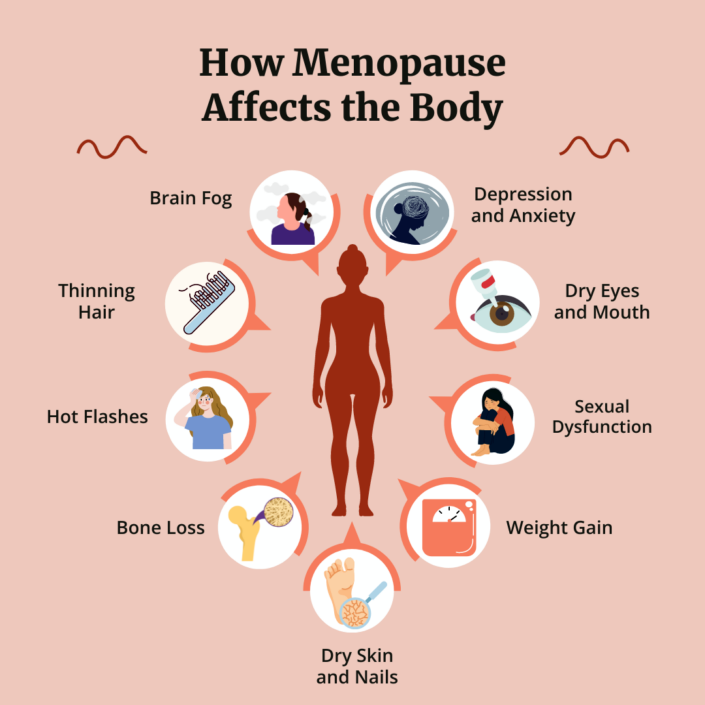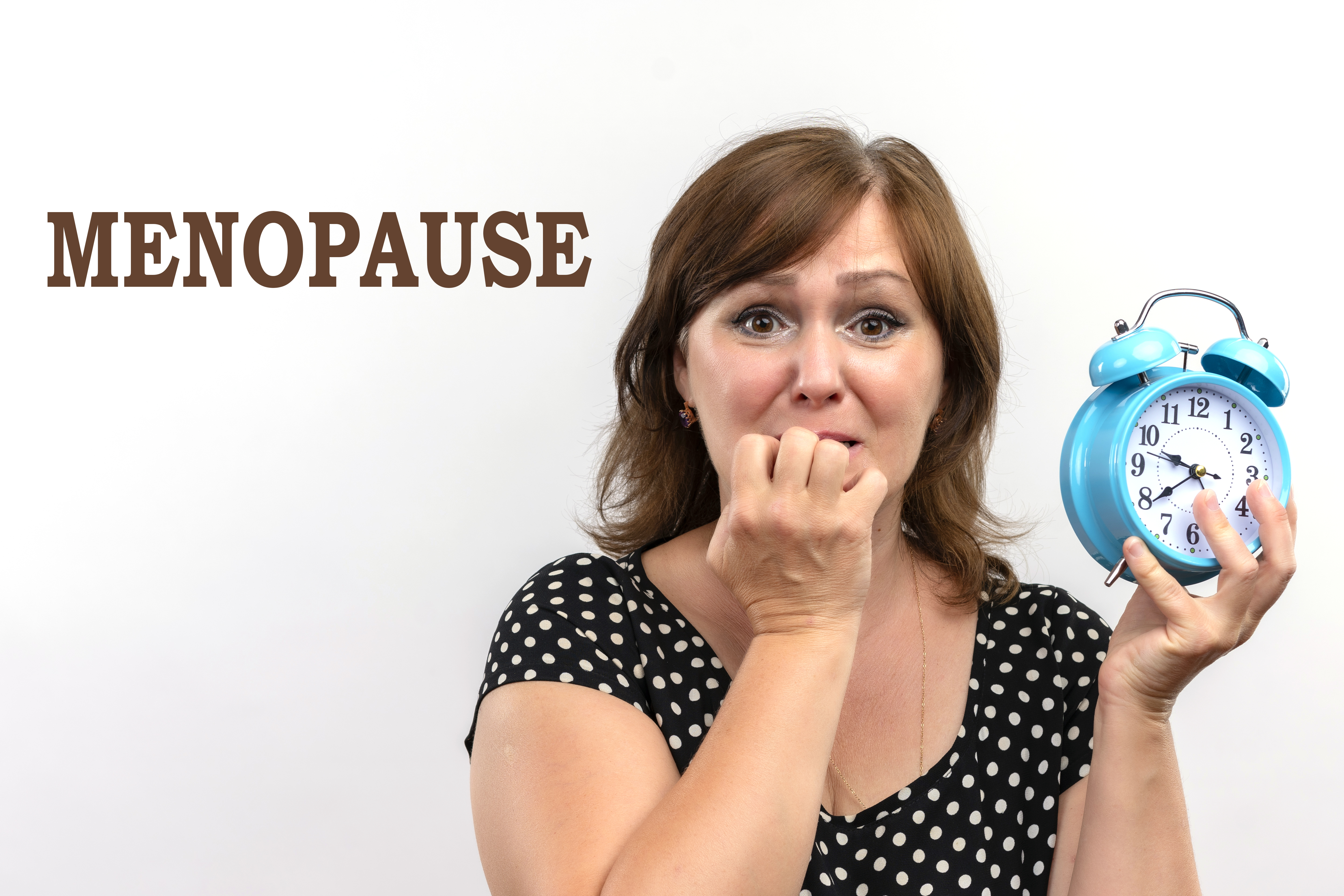MENOPAUSE
Share :
Menopause is a natural biological process that women go through, typically between ages 45-55, when their ovaries stop producing eggs and hormone level decrease. This leads to end of menstruation or periods. Officially defined as 12 consecutive months without menstruation/periods.
Three stages of menopause
1. Perimenopause is the transitional period before menopause. During perimenopause, levels of oestrogen start to decrease. You may begin having menopause-like symptoms, such as hot flashes or irregular periods.
2. Menopause: Menopause is the point when you no longer have menstrual periods. At this stage, your ovaries don’t release eggs, and your body doesn’t produce much oestrogen.
3. Post menopause: This is the time after menopause. You stay in post menopause for the rest of your life. While most symptoms of post menopause, you can continue to have mild menopausal symptoms for several years in post menopause.

Symptoms
1. Irregular periods or periods that are heavier or lighter than usual
2. Hot flashes (a sudden feeling of warmth that spreads over your body) Night sweats and/or cold flashes
3. Vaginal dryness that causes discomfort during sex
4. Urinary urgency (a pressing need to pee more frequently)
5. Difficulty sleeping (insomnia)
6. Emotional changes (irritability, mood swings or depression)
Some myth& facts of menopause
Myth 1: Menopause happen overnight.
Fact: It is a gradual process that occurs over several years. The term menopause technically refers to the point in time when a woman has not had a menstrual period for 12 consecutive months. However, the symptoms and changes leading up to menopause, known as perimenopause, can last for several years. During this time, hormone levels fluctuate, and a woman may experience irregular periods, other symptoms. After menopause, a woman enters the postmenopausal phase, when these symptoms often start to subside.
Myth 2: Menopause Only Affects Older Women
Fact: While menopause typically occurs in women between the ages of 45 and 55, it can also happen earlier. Some women experience early menopause, which can occur before the age of 40. This may be due to genetics, certain medical conditions, or treatments such as chemotherapy. Early menopause can be distressing for women who are not expecting it, but it is important to know that it is possible and not abnormal. Additionally, some women go through premature ovarian insufficiency, which can cause menopause-like symptoms even earlier than 40.
Myth 3: Hot Flashes Only Happen at Night
Fact: Hot flashes can happen at any time of day, not just at
night. A hot flash is a sudden feeling of heat that spreads
throughout the body, often accompanied by sweating and a flushed face. While some women do experience night sweats, hot flashes can occur at any time, day, or night. The frequency and severity of hot flashes vary from woman to woman, and they may last for a few seconds to several minutes.
Myth 4: Menopause Only Affects Physical Health
Fact: Menopause affects both physical and mental health. The hormonal changes that occur during menopause can lead to emotional symptoms like anxiety, mood swings, and feelings of sadness. Addressing both the physical and emotional changes. Exercise, a healthy diet, good sleep, and stress management techniques like yoga or meditation can help support both mental and physical well-being during menopause.
Myth 5: Weight Gain Is Unavoidable During Menopause
Fact: While it is true that many women experience changes in body composition during menopause, weight gain is not inevitable. Hormonal changes can lead to a slower metabolism, and many women find it more challenging to maintain their pre-menopausal weight. However, weight gain can often be managed through a healthy diet, regular exercise, and lifestyle adjustments.
So, each woman experiences menopause in a different way. Some women may go through menopause with minimal symptoms, while others may find the symptoms more disruptive. Factors such as genetics, lifestyle, and overall health can all influence how a woman experiences menopause.
Menopause is a natural stage of life that every woman will go through, yet it is often misunderstood. We hope to make menopause less difficult for women. While it can bring challenges, menopause is not something to be feared. With the right information and support, women can navigate this transition and continue to lead vibrant, fulfilling lives.
Dr. Babilu Aju
Medical Officer
Dr. P. Alikutty's Ayurveda and Modern Hospital - Kottakal
 en
en
 العربية
العربية









